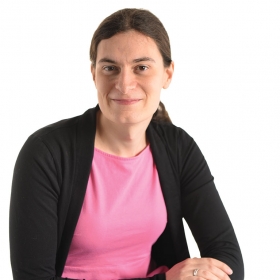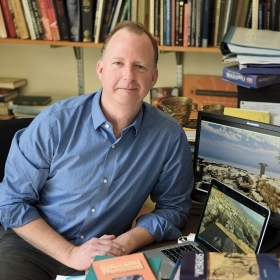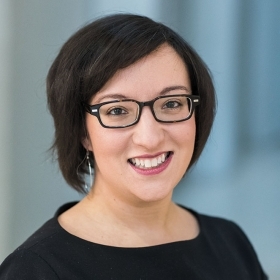Ada Lerner’s research on inclusion security and privacy centers on how to provide the benefits of technology equitably across society.

Photo by Richard Howard
In recent decades, technology has become a fundamental part of everyday life, whether we are falling down a rabbit hole of never-ending information on Wikipedia, buying anything and everything on Amazon, or exchanging emails and messages with people far and wide. Yet the integration of technology into society also creates challenges for certain groups that use it—which is where Ada Lerner’s research comes in.
“The whole purpose of my research is to provide the benefits of technology equitably across society. My goal is to understand the way that technology works, the way that technology is being used in real life, the way it interacts with human beings, and then see if I can figure out how to design technology better so that it doesn’t create more problems than it solves,” says Lerner, an assistant professor of computer science. (Lerner uses the pronouns they, their, theirs.)
Lerner studies inclusive security and privacy, a subfield of security that focuses on specific populations, including marginalized or vulnerable groups like refugees or LGBTQ people, as well as groups with key roles in society, such as lawyers or journalists. These populations, they explain, often have different needs and concerns in terms of technology and security.
One of Lerner’s projects involved building a better encrypted email system for lawyers and journalists, who often send and receive sensitive information that must be protected. To test the system, Lerner invited lawyers and journalists into the lab for a role-playing scenario. As they had hoped, the new system was faster and less error-prone than other encryption tools. However, Lerner gained even more insight from talking to the subjects about why the system might not work: Lawyers brought up issues like needing to easily search emails (as is often court-mandated), while journalists raised concerns like protecting the identities of sources. “The context is to really inform the design of the technology with on-the-ground information from the real people who would be using it,” Lerner explains.
Currently, Lerner is tackling security and privacy within the transgender community. Last summer, Lerner and their students conducted in-depth interviews with transgender people about their use of technology that revealed a tension between wanting to be visible online to engage in activism, support other transgender people, and represent transgender identities, and wanting to protect themselves from potential harassment and violence. “They saw that their main path to doing good in the world was also the main path to putting themselves at greater risk,” Lerner says.
Lerner is now starting a quantitative, survey-based study to investigate whether this visibility risk is more of a concern to transgender people than to other marginalized groups, and whether it causes them to opt out of potentially beneficial technologies. Lerner will also develop technologies to address the problem: for example, a system that allows moderators of a Facebook group for queer people of color to verify the identity characteristics of members while protecting their privacy.
However, Lerner’s focus on inclusivity extends beyond research to the broader field of computer science. “I had a lot of privilege coming into computer science,” Lerner says, the result of being white, having a software engineer father, and coding from a young age. As a member of Wellesley’s Computer Science Department Inclusivity Committee, Lerner is developing a diversity and inclusion statement to help all students, regardless of background, feel welcome.
“[The goal] is to take concrete steps that help to create equity,” Lerner says, such as holding social events to integrate students into the community, and implementing more inclusive teaching practices.
Lerner is also building an inclusive community within their own lab, where students are involved in all aspects of research. “Joining a research lab and being part of that community is really a powerful experience, I think, for making people feel like they belong in computer science,” they say.


